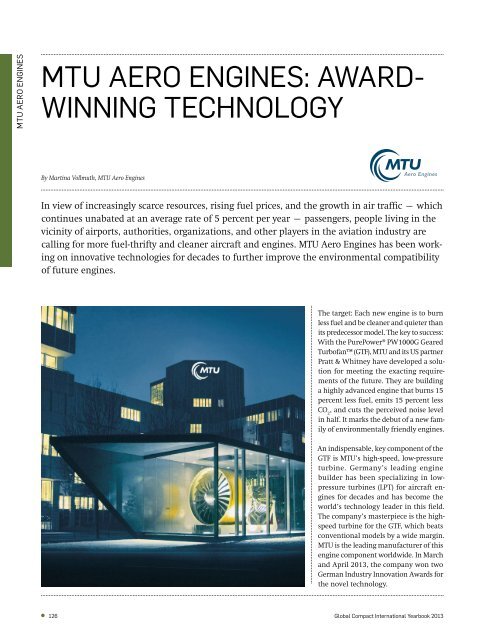Global Compact International Yearbook Ausgabe 2013
The UN Global Compact is the world’s leading platform for corporate sustainability. In describing the future aims of the Global Compact, UN Secretary-General H.E. Ban Ki-moon says: “A growing number of business in all regions recognize the importance of reflecting environmental, social, and economic considerations in their operations and strategies. Now the challenge is to move from incremental process to transformation – in society and markets alike.” The new 2013 edition of the Global Compact International Yearbook offers proactive and in-depth information on key sustainability issues and focuses on recent developments of stakeholder management such as managing corporate legitimacy, for example. Concomitant to this is the call for a more holistic reporting of companies’ financial and nonfinancial performance, which is expressed in the idea of integrated reporting. Furthermore, this edition highlights the connection between the sustainable development of African societies and the ways of managing and governing their natural wealth. The newest developments concerning the move toward a low-carbon economy are shown in the chapter on climate change, which emphasizes the importance of reducing the output of greenhouse gases. Corresponding to the idea of mutual learning, the Global Compact International Yearbook includes 43 good practices of corporate participants that showcase different approaches to the implementation of the Ten Principles of the Global Compact. The Global Compact International Yearbook is a product of the macondo media group and United Nation Publications in cooperation with the Global Compact Office in support of the UN Global Compact and the global advancement of corporate sustainability. It contains 196 pages.
The UN Global Compact is the world’s leading platform for corporate sustainability. In describing the future aims of the Global Compact, UN Secretary-General H.E. Ban Ki-moon says: “A growing number of business in all regions recognize the importance of reflecting environmental, social, and economic considerations in their operations and strategies. Now the challenge is to move from incremental process to transformation – in society and markets alike.”
The new 2013 edition of the Global Compact International Yearbook offers proactive and in-depth information on key sustainability issues and focuses on recent developments of stakeholder management such as managing corporate legitimacy, for example. Concomitant to this is the call for a more holistic reporting of companies’ financial and nonfinancial performance, which is expressed in the idea of integrated reporting. Furthermore, this edition highlights the connection between the sustainable development of African societies and the ways of managing and governing their natural wealth. The newest developments concerning the move toward a low-carbon economy are shown in the chapter on climate change, which emphasizes the importance of reducing the output of greenhouse gases.
Corresponding to the idea of mutual learning, the Global Compact International Yearbook includes 43 good practices of corporate participants that showcase different approaches to the implementation of the Ten Principles of the Global Compact. The Global Compact International Yearbook is a product of the macondo media group and United Nation Publications in cooperation with the Global Compact Office in support of the UN Global Compact and the global advancement of corporate sustainability. It contains 196 pages.
You also want an ePaper? Increase the reach of your titles
YUMPU automatically turns print PDFs into web optimized ePapers that Google loves.
MTU Aero Engines<br />
MTU Aero Engines: Award-<br />
Winning Technology<br />
By Martina Vollmuth, MTU Aero Engines<br />
In view of increasingly scarce resources, rising fuel prices, and the growth in air traffic – which<br />
continues unabated at an average rate of 5 percent per year – passengers, people living in the<br />
vicinity of airports, authorities, organizations, and other players in the aviation industry are<br />
calling for more fuel-thrifty and cleaner aircraft and engines. MTU Aero Engines has been working<br />
on innovative technologies for decades to further improve the environmental compatibility<br />
of future engines.<br />
The target: Each new engine is to burn<br />
less fuel and be cleaner and quieter than<br />
its predecessor model. The key to success:<br />
With the PurePower® PW1000G Geared<br />
Turbofan (GTF), MTU and its US partner<br />
Pratt & Whitney have developed a solution<br />
for meeting the exacting requirements<br />
of the future. They are building<br />
a highly advanced engine that burns 15<br />
percent less fuel, emits 15 percent less<br />
CO 2<br />
, and cuts the perceived noise level<br />
in half. It marks the debut of a new family<br />
of environmentally friendly engines.<br />
An indispensable, key component of the<br />
GTF is MTU’s high-speed, low-pressure<br />
turbine. Germany’s leading engine<br />
builder has been specializing in lowpressure<br />
turbines (LPT) for aircraft engines<br />
for decades and has become the<br />
world’s technology leader in this field.<br />
The company’s masterpiece is the highspeed<br />
turbine for the GTF, which beats<br />
conventional models by a wide margin.<br />
MTU is the leading manufacturer of this<br />
engine component worldwide. In March<br />
and April <strong>2013</strong>, the company won two<br />
German Industry Innovation Awards for<br />
the novel technology.<br />
126 <strong>Global</strong> <strong>Compact</strong> <strong>International</strong> <strong>Yearbook</strong> <strong>2013</strong>

















